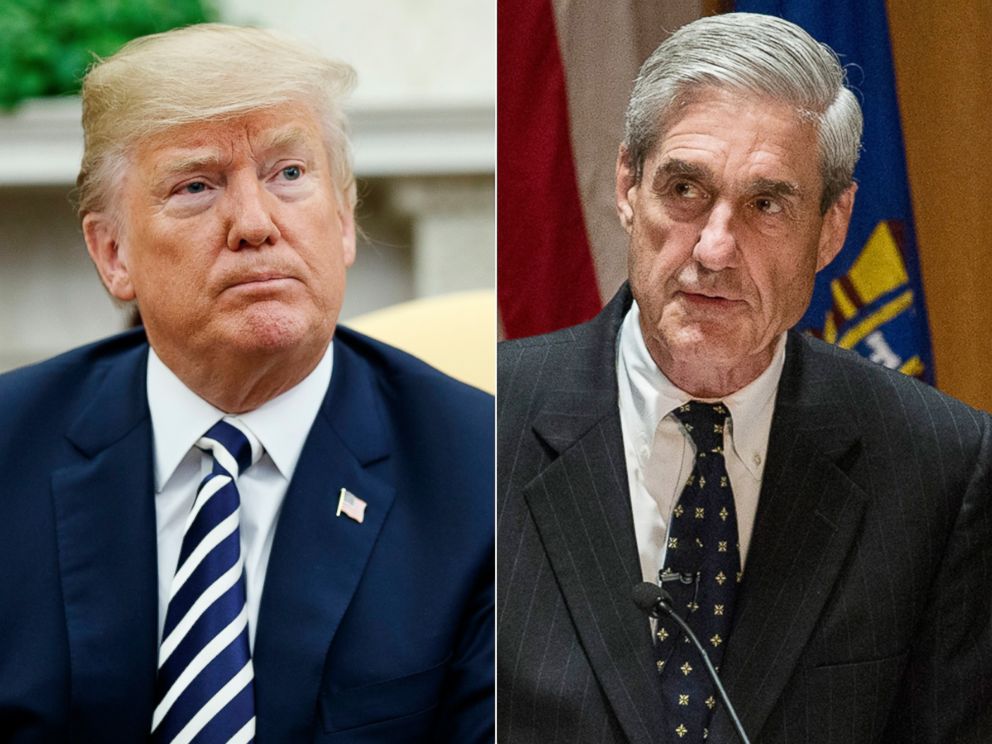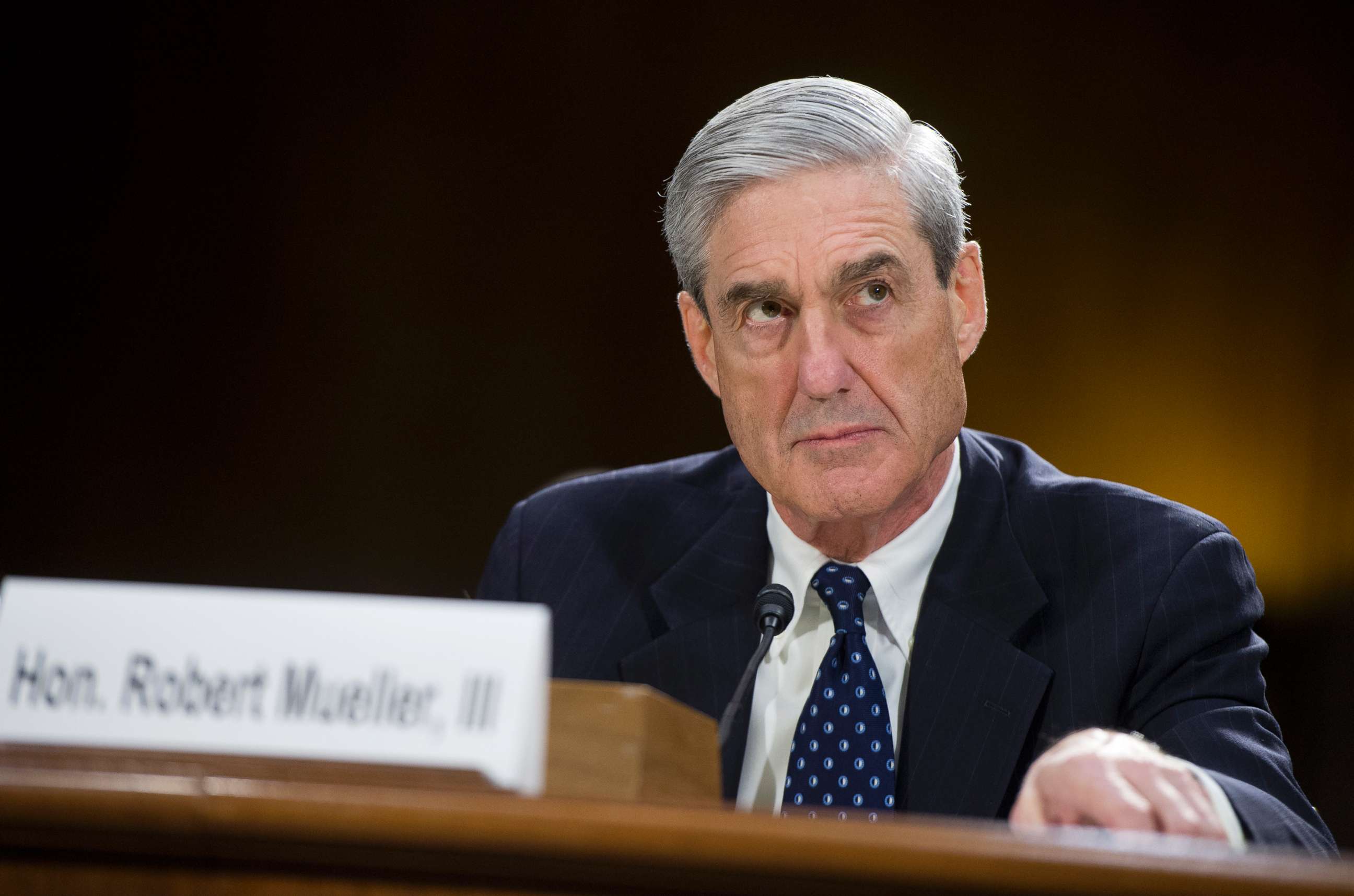Mueller will navigate uncharted waters when wrapping Russia probe, legal experts say
Legal experts are already debating the best way for him to end it.
Though special counsel Robert Mueller may be far from concluding his investigation into possible Russian interference in the 2016 presidential campaign, legal experts are already debating the best way for him to end it.
This week, the public learned that the special counsel’s team told President Donald Trump’s lawyers that the president remains under investigation but is not a criminal target, which was first reported by the Washington Post and multiple sources familiar with the conversations confirmed to ABC News. The Washington Post also reported that Mueller’s team is preparing a report about the president’s actions while in office and that the president’s allies think a second report detailing their findings on Russia’s interference could follow.
ABC News has not independently confirmed this information.

Under federal regulation, Mueller must provide a confidential report to Deputy Attorney General Rod Rosenstein at the conclusion of his probe that explains the special counsel's decisions about whether or not prosecutions are warranted.
Rosenstein will decide whether to make that report public.
Rosenstein must by Justice Department regulation “notify” the chairmen and ranking minority members of the House Judiciary Committee and the Senate Judiciary Committee on the probe's conclusion “with an explanation for each action,” but the regulation does not require him to release the special counsel's full report to those lawmakers. As they conduct their own separate investigations of possible Russian election interference, members of Congress could try to subpoena the special counsel report if Rosenstein refuses to hand it over.
Mueller’s team will navigate uncharted waters when they determine the type of report to submit. Mueller is the first special counsel appointed under new regulations to investigate a sitting president.
“There are two models,” explained Paul Rosenzweig, former counsel to independent counsel Kenneth Starr during the Whitewater investigation. “Mueller could write a bare bones report, around ten pages: I came, I saw, I did this, this is the result, good bye,” said Rosenzweig.

Or on the other end of the spectrum, Mueller could write a full report with everything that they found, saw and did, said Rosenzweig, who recalled that the Starr Report outlining the case for President Bill Clinton’s impeachment was two hundred pages of text, four volumes of exhibits, and at least two van-fulls of documents.
“When it comes down to it, does Mueller see the job as a traditional criminal prosecution or a public truth commission?” Rosenzweig queried.
Rosenzweig told ABC News that if he was on Mueller’s team, he would advocate for the “minimalist model” because Congress chose not to replicate the “public truth commission” idea when it allowed the independent counsel law to lapse, and with it the requirement that an independent counsel report its findings directly to the public. “I would take that lesson to heart,” he said.
But Jonathan Turley, a law professor at George Washington University Law School, called for a full accounting of Mueller's findings and hopes the special counsel writes a lengthy report that Rosenstein makes public.
“The public has lost faith in the spins of both parties in Congress,” Turley told ABC News. “There is a real need for a full and independent account to be given to the public. Absent such a record, it will be hard for this deeply divided country to move beyond these controversies.”
Harold Krent, dean of the Chicago-Kent College of Law at the Illinois Institute of Technology, said that if Mueller is already preparing reports for Rosenstein, then it could mean that his investigation is wrapping up. “You wouldn’t want to submit an interim report that would tip off your targets,” said Krent. If it were his decision, Krent said he would prepare two reports, one for public consumption and a more detailed report for Rosenstein and select members of Congress.
“I do feel that whatever Mueller does he should air on the side of transparency. There is so much discussion and angst, and it is important that the public understand the principals involved in whether to indict or not indict.”
A spokesperson for Mueller’s team declined to comment on the status of the investigation.
The president’s lawyer, Jay Sekulow, told ABC News “we do not discuss real or alleged conversations between our legal team and the Office of Special Counsel.”
Editor's Note: A previous version of this story incorrectly stated ABC News had confirmed Washington Post reporting that the special counsel’s team is preparing a report about the president’s actions while in office and that the president’s allies believe Robert Mueller could issue a second report. ABC News has not independently confirmed this information.
ABC News’ Mike Levine, John Santucci, Katherine Faulders, Jordyn Phelps and Matt Mosk contributed to this report.




